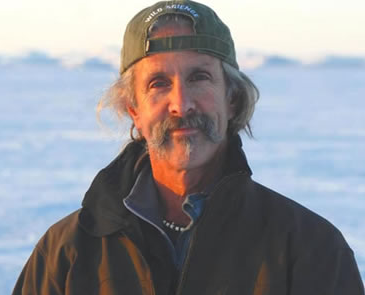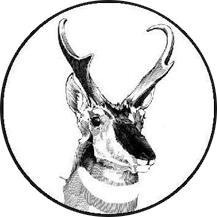The Aldo Leopold Award is awarded to a well-established individual who has made a lasting contribution to the conservation of mammals and their habitats. Aldo Leopold, the “father” of wildlife ecology and management, is well known for his famous land ethic philosophy and his influence on wildlife conservation, including his active membership on ASM Conservation Committees in the 1930s.

The 2013 Aldo Leopold Conservation Award from the American Society of Mammalogists is awarded to Dr. Joel Berger. The Award is given to well-established individuals who have made lasting contributions to the conservation of mammals and their habitats. Dr. Berger has addressed research questions about mammalian ecology and conservation in natural systems at broad geographic scales across 5 continents including 1) social behavior and ecology of wild horses, 2) behavioral and demographic consequences of horn removal in African rhinos, 3) effects of predator reintroduction on the ecology of prey species and on the structure of vertebrate communities, 4) long-distance migration by mammals and conservation of their migration corridors, 5) effects of climate change in the Arctic on demography and persistence of musk ox, and 6) and conservation of large mammals in Bhutan, Tibet, and Mongolia. In each of these systems, our recipient and his collaborators have combined traditional approaches and novel field manipulations that facilitate stronger inferences about both fundamental and applied ecological topics. Dr. Berger also has engaged in capacity building in these projects through efforts with local conservation organizations, education and training for local scientists and students, and advising for governmental agencies.
Dr. Berger was elected as a Fellow of the American Association for Advancement of Sciences, twice received the Rolex Foundation's Meritorious Project Award, and won the LaRue Memorial Conservation Award from the Society for Conservation Biology. Dr. Berger has communicated his work and the importance of conservation to the public through popular articles, and interviews in popular media outlets. Such outreach is essential to influence public perspectives and consequently, public policy. In addition, these efforts serve to inspire the next generation of scientists and citizen supporters of conservation.
Dr. Berger has mentored 17 graduate and post-graduate students. One student remarked “I can attest that our recipient was an advisor who continually challenged students to think critically about questions that were most important for mammalian conservation and to think creatively about how to address them.” Perhaps most telling of his long-term impact on conservation is that fact that all of Dr. Berger’s former graduate students currently contribute to research and conservation of mammals. Dr. Berger holds an endowed chair, the John J. Craighead Chair of Wildlife Conservation at the University of Montana, and he is a Senior Scientist for the Wildlife Conservation Society.
